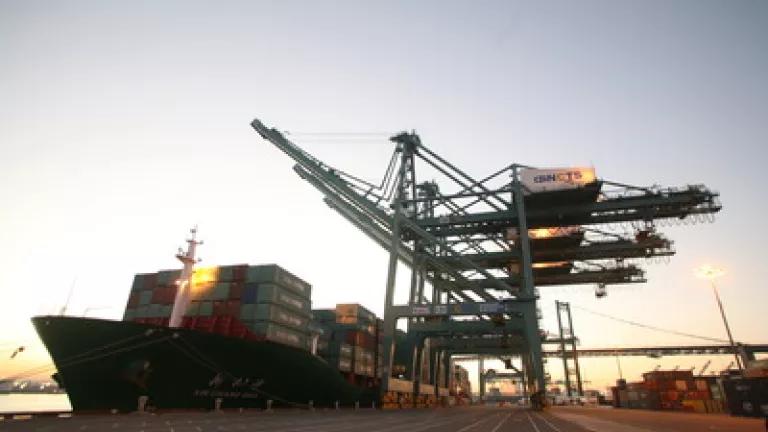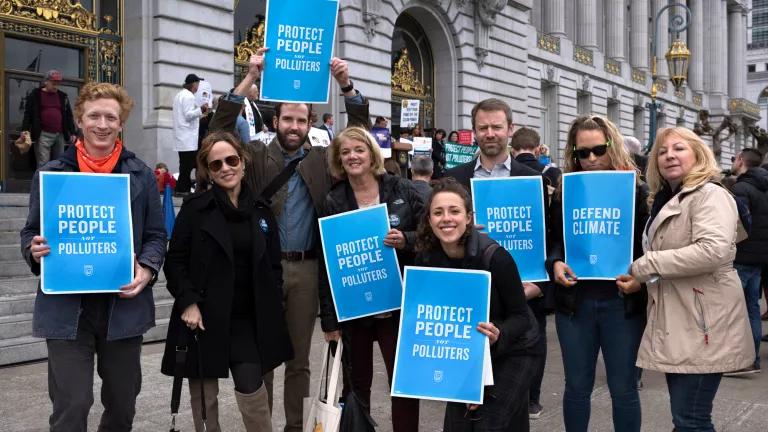
Today, a federal district court agreed to dismiss the Pacific Merchant Shipping Association’s (PMSA) legal attack against California’s requirement that large ocean-going vessels use cleaner fuel when doing business at California’s ports. The court’s action ends a legal battle that spans six years.
PMSA’s attack on California’s vessel fuel rules began in 2006, and involved two separate lawsuits over whether California has legal authority to impose clean fuel requirements on ships. The shipping industry challenged regulations requiring thousands of vessels that transport TVs, tennis shoes and cars over the Pacific and to our ports to use cleaner fuel starting 24 nautical miles from California’s shore. NRDC joined both cases to help California defend its regulations. While the shipping industry prevailed in the first lawsuit, California prevailed in the second. As a result of this recent victory, roughly 3,500 premature deaths will be avoided by dramatically reducing air pollution from shipping operations.
Eighty percent of Californians are exposed to air pollution from large ocean-going vessels burning highly toxic bunker fuel. While people living close to ports are particularly affected, wind patterns, geography, and meteorology transport vessel-generated air pollution from our coastline and into inland communities. Particles of burned fuel are then inhaled by millions of Californians—aggravating our lungs and compromising our health.
I wrote about our success in protecting California’s vessel fuel regulations in March 2011 and July 2009. In addition to those victories, this past June, the U.S. Supreme Court denied PMSA’s request that our nation’s highest court hear its case after the Solicitor General opined that PMSA’s legal claims did not warrant further review.
During the litigation, PMSA admitted that its members’ operations pollute our lungs. PMSA also admitted that compliance with California’s vessel fuel rules was not technically impossible or even difficult. Further, evidence demonstrated that the cost of complying with the regulations, once passed on to the consumer would be minimal—an additional ten cents on the cost of a TV. California’s vessel fuel rules protect public health. They are technically feasible. They make economic sense. And today, we can finally conclude: they are legal.




